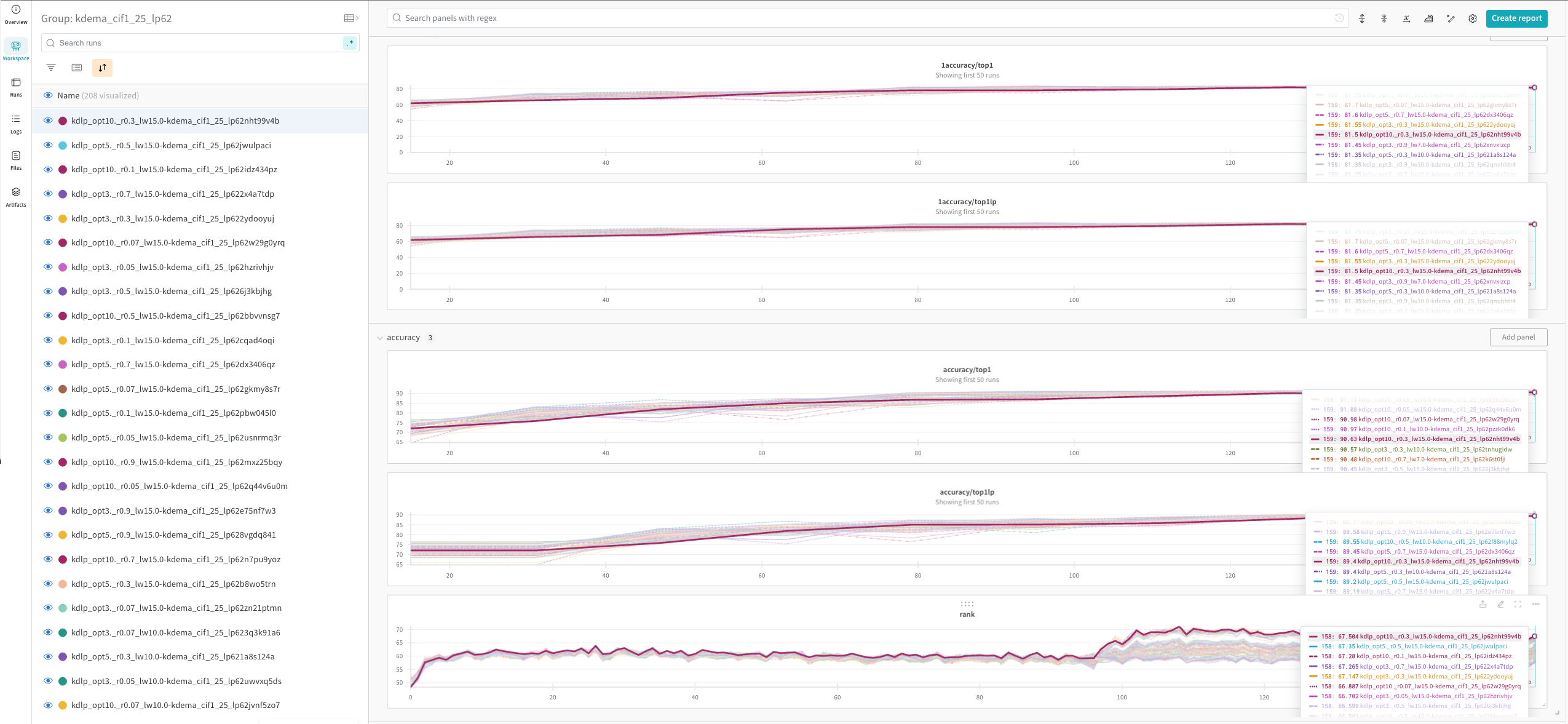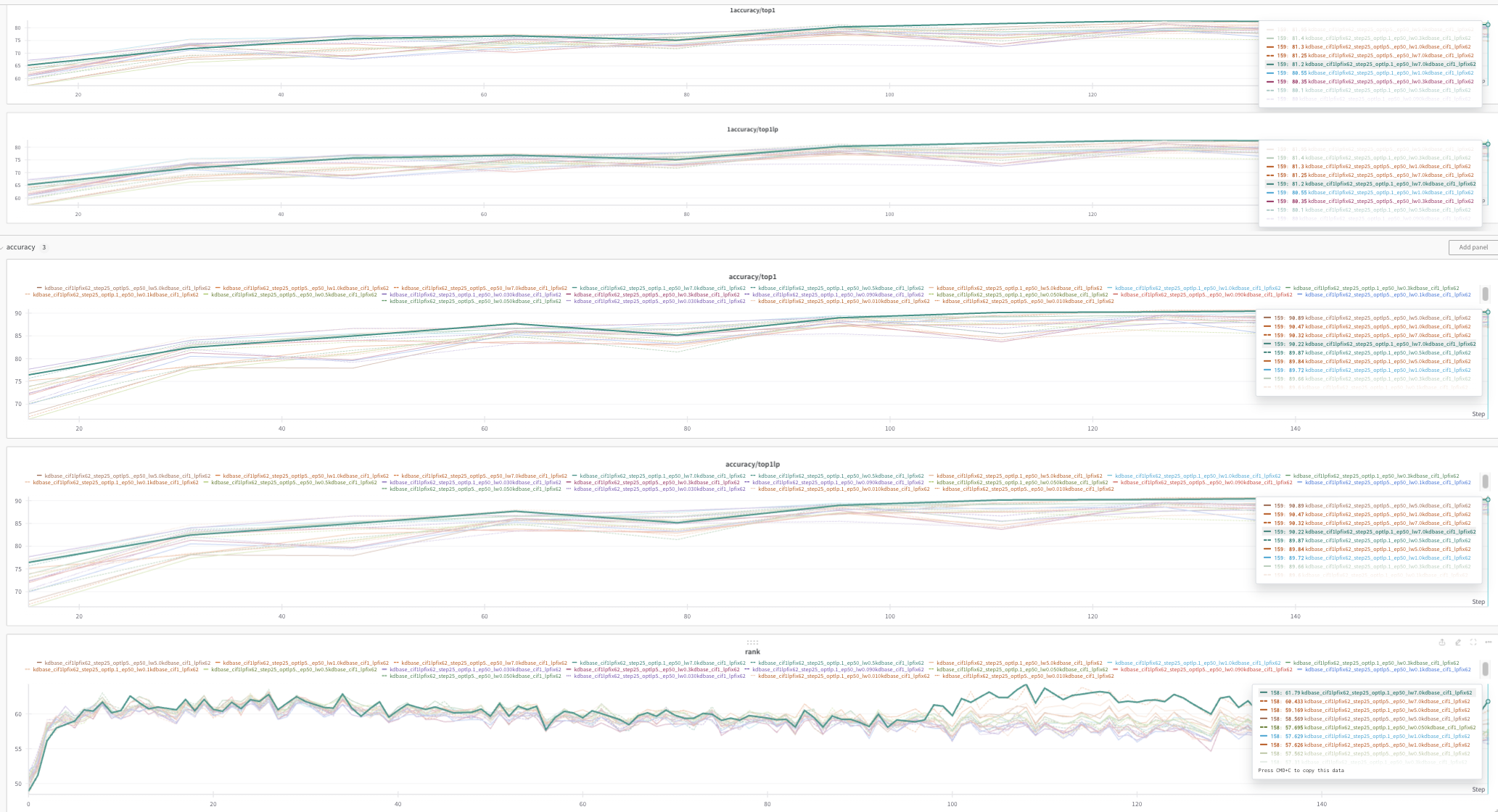in this repo, we provide code for project " Investigating masked model in representation learning and anti-forgetting". Here we will provide guidance for installation, peforming experiments and some results.
Please refer to MMpretrain for more details, below are the copy of theirs:
Below are quick steps for installation:
conda create -n open-mmlab python=3.8 pytorch==1.10.1 torchvision==0.11.2 cudatoolkit=11.3 -c pytorch -y
conda activate open-mmlab
pip install openmim
git clone https://github.com/open-mmlab/mmpretrain.git
cd mmpretrain
mim install -e .Please refer to installation documentation for more detailed installation and dataset preparation.
For multi-modality models support, please install the extra dependencies by:
mim install -e ".[multimodal]"For wandb log, please install wandb using the following
pip install wandb
wandb loginand uncomment the following line from the corresponding config file in cifar-img/dl_res18_exp
# vis_backends = dict(type='WandbVisBackend', xxxxxxxxxAll experiments can be seen in tools/res_trails directory
All related configurations can be seen in cifar-img/dl_res18_exp
The experiments of naive CE training can be found in /tools/cl_trails/baseline_CE
Corresponding configs are in cifar-img/dl_res18_exp/baseline
bash /---your---own---working--dir--/tools/cl_trails/baseline_CE/run_baselinece.shThe experiments of KD training can be found in tools/cl_trails/baseline_KD
Corresponding configs are in cifar-img/dl_res18_exp/baseline
#reference model basic swap and freeze
bash /---your---own---working--dir--/tools/cl_trails/baseline_KD/run_kdbaseline.sh
#change the reference model using EMA
bash /---your---own---working--dir--/tools/cl_trails/baseline_KD/run_kdema_var.sh 0.1 #emaratio
#${ema_ratios[$SLURM_ARRAY_TASK_ID]} #for slurm array job
#for further classifier only(clso: we only use the classifer head as reference model) experiments, just change the config: model.train_cfg.cls_only=TrueThe masked model in this work can be illustrated in the following figure:
where the backbone and classifier (task) head are denoted by 
black trapezoids, and a 
black rectangle represents the hidden/output feature. Here, the 
gray arrow denotes the baseline CE pipeline, and the 
light purple arrow shows the KD/Masked reference pipeline.
The 
light purple rectangle denotes the Masked Model method, where we apply a mask in the hidden feature. While the classifier head requires the input channel unchanged, we apply mask tokens to append the masked part, as shown in the 
light purple dashed rectangle on the left.
Inside this rectangle, the 
gray part represents the masked appended token, and the 
white part is the unmasked part. On the right part, we have two inverse masked representations. Getting inspired by the diffusion model where the model predicts the noise, we provide the inverse masked feature to the model, hoping the model recovers better from the masked representation (the inverse forward has detached gradient).
In addition to the base-KD/Mask model, we further introduce the cls_only line of KD/Mask model, which is illustrated with the same masked strategy and a 
light blue arrow.
Black trapezoid: Backbone and classifier (task) headBlack rectangle: Hidden/output featureGray arrow: Baseline CE pipelineLight purple arrow: KD/Masked reference pipelineLight purple rectangle: Masked Model methodGray part inside the light purple rectangle: Masked appended tokenWhite part inside the light purple rectangle: Unmasked partLight blue arrow: cls_only line of KD/Mask model
The experiments of Masked model training can be found in tools/cl_trails/mask
Corresponding configs are in cifar-img/dl_res18_exp/mask
bash /---your---own---working--dir--/tools/cl_trails/mask/run_mskall_var.sh 0.9 'v1' 'sgf' #mask_ratio #inv_mode #mask_mode
# for inv_mode
# this is just a selection between whether
## v1: we add the inv_mask output logits on masked output
## v2: we substract the inv_mask output logits from the target outputs
### p.s. target outputs[the under rectangle logits in the figure]
# masked output[the upper rectangle logits]
# for mask_mode
# this is just difference of different selection of masked tokens to append the in_channel
## s: we use single 1*1 torch tensor
## a: we use all 1*(channels- channels*mask_ratio) torch tensor
## sgd: single tensor with gradient=false
## agd: all tensor with gradient=false
### p.s.: [all will be expanded as same batch-size of hidden feature.]
bash /---your---own---working--dir--/tools/cl_trails/mask/run_mskclso_var.sh 0.9 'v1' 'sgf' #mask_ratio #inv_mode #mask_mode
bash /---your---own---working--dir--/tools/cl_trails/mask/run_mskclso_var.sh 0.9 'v1' 'sgf' 0.1 'ema' #mask_ratio #inv_mode #mask_mode #ema_ratio #ema_mode
# for ema_mode
# this is just a seletion of different ema_mode
## 'ema' ExponentialMovingAverage
## 'anne' MomentumAnnealingEMA
## 'sto' StochasticWeightAverage
All baseline and Self-KD hyperparameter results table can be found in tools/cl_trails/test_cl.sh, tools/cl_trails/baseline_KD/run_SD.md
Rank(me) details see: https://arxiv.org/abs/2210.02885, can be explained as a kind of feature learning quality metric, similar to the rank of representation.
 Here we can clearly see in the plot
Here we can clearly see in the plot
- So far the KD ema results have slightly better accuracy/top1 results and larger rankme value (not fully shown explained in note) [purple VS blue]
- The naive training [blue] have the tendency of constant droping Rank, which may due to the influence of classifer head(which has a large-to-small compression, but do not show on SSL method, which have a small-to-large[or kind of equivilant] reconstruction head)
- KD/Mask have the power of considerably increase the rank of our feature learning process, but for mask, the accuracy part do not surpass the baseline.(maybe can try a linear probing accuracy?)
Note: Since HPC require storage limitations, so I'm annoyed by wandb's artifacts, I accidentally rm -rf * of some of the logs of wandb results while deleting the wandb cache.
- kd/msk method do have a smaller performance gap, is this a trade off or can be alleviated by LP(good representation learnt) or some other method need to be proposed
- is good representation kind of reflected by RankMe?
- is LP properly implemented?
- what experiements to follow?
Rank Log:
- KD-EMA LP and CIFAR10.1 Results Step25 Overview [Most EMA ratio and loss weight]:
- LP:
- The LP results and original classifier predictions are totally the same for the CIFAR10.1 dataset.
- However, the LP results on the CIFAR10 test set are sometimes slightly better than the original dataset.
- Rank: 3. Based on rank, as stated before, the loss weight on the auxiliary loss plays the main part. (Distillation loss helps improve rank) 4. Higher rank (>=59) tends to exhibit higher accuracy/top1 but not quite as high as ensemble distill results.
- LP:
-
KD-EMA LP and CIFAR10.1 Results Step1 Overview
- With all the above LP results, what is different is that LP results of this step 1 started version downgrade slightly less on CIFAR10.1 vs CIFAR10. (Step1: 90->82.55 to Step25: 91->81)
- Rank also exhibits a similar result. This time the bottom line is higher and the rise of rank starts almost in line with the start step of the method.
-
KD-Base LP and CIFAR10.1 Results Overview [Most EMA ratio and loss weight]:
- LP:
- The KD base part of the LP results vs original classifier head predictions, they are all the same.
- The margin between CIFAR original test dataset vs CIFAR10.1 is higher compared to that of the KD-EMA mode.
- The highest rank value is almost the lowest rank value of KD-EMA mode.
- Test higher LP learning rate multiplier still pending.
- LP:
- Test masked results performance on CIFAR-10.1 dataset. ✅ ✅
- Finish EMA masked model results. ✅ ❓
- ema on backbone
- ema based on lp mult best
- mskall baseline based on kdema best configure
- try difussion thing
- Test longer epochs of key hyperparameter selections. ❓ ❓
- Finish masked experiments on continual learning setting. ❓ ❓


